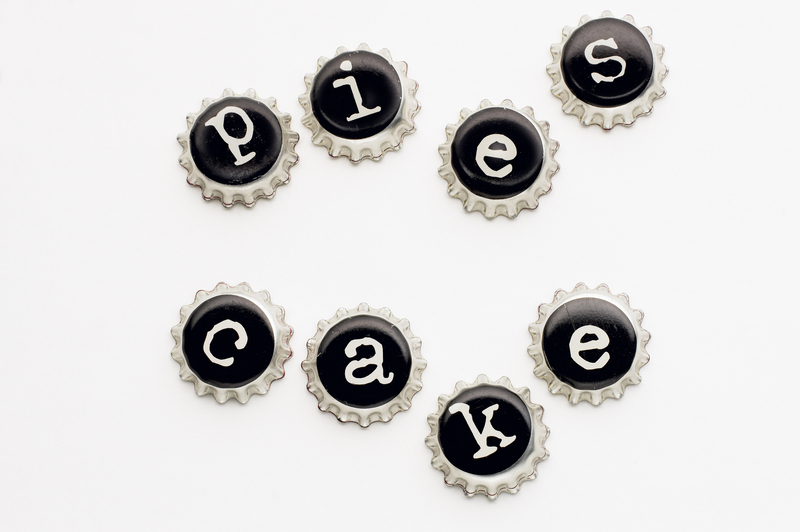Transformative Tips for Waste-Free Living at Home
Are you ready to embark on a journey toward a greener, more sustainable lifestyle? Waste-free living at home is a powerful way to reduce your environmental footprint, save money, and nurture a healthier household. Whether you're just starting out or looking to deepen your commitment, a transition to a zero-waste lifestyle is easier and more rewarding than you might think.
In this comprehensive guide, we'll explore practical and transformative tips for waste-free living. You'll discover actionable steps, resourceful habits, and inspiring ideas that can help you build a more eco-conscious home--one small change at a time!

Why Waste-Free Living Matters
The average household produces a staggering amount of trash each year, with much of it ending up in landfills or polluting our oceans. By adopting waste-free living practices, you're not only minimizing your own waste but also contributing to broader efforts to combat climate change, conserve resources, and protect biodiversity.
- Reduces landfill waste: Less garbage means fewer landfills and less environmental damage.
- Saves money: Reducing waste helps you buy less, reuse more, and spend more wisely.
- Promotes healthier living: Many waste-free solutions involve minimizing exposure to harmful chemicals and plastics.
Step-by-Step Strategies for a Zero Waste Home
1. Start with a Waste Audit
Begin your waste-free transformation by examining what you throw away. For a week, track your household's waste. Categorize trash into recyclables, compostables, and landfill items. Use this as a foundation to identify waste reduction opportunities in your home.
- Make a list of recurring single-use items.
- Assess food waste and packaging habits.
- Note non-recyclable waste to target for elimination.
2. Refuse, Reduce, Reuse, Recycle, Rot
One of the cornerstones of waste-free living at home is adopting the "5 R's":
- Refuse: Say no to unnecessary items and packaging.
- Reduce: Cut back on what you bring into your home.
- Reuse: Choose reusable options over disposables.
- Recycle: Recycle thoughtfully, only what you can't refuse, reduce, or reuse.
- Rot: Compost food scraps and yard waste.
Applying these principles rigorously can radically decrease your household waste in a short time.
3. Transform Your Kitchen
The kitchen is typically ground zero for household waste. Here's how to cultivate a zero waste kitchen:
- Buy in bulk: Bring your own containers to bulk stores to avoid excess packaging.
- Minimize food waste: Plan meals, store food properly, and use leftovers creatively.
- Switch to reusable wraps: Ditch plastic wraps and bags for beeswax wraps, silicon bags, or cloth covers.
- Compost: Set up a home composting system for scraps and peels.
- Choose natural sponges and dish brushes: Avoid plastic cleaning tools.
4. Make Your Bathroom Waste-Free
Bathrooms generate significant waste, from plastic bottles to disposable products. You can transition to a low-waste or zero-waste bathroom with these tips:
- Choose bar soaps and solid shampoos over bottled liquids.
- Swap disposable razors for safety razors.
- Replace single-use cotton pads with washable cloth alternatives.
- Use compostable toothbrushes made of bamboo.
- Opt for toilet paper made from recycled materials and packaged plastic-free, or try bidets.
5. Sustainable Cleaning and Laundry Habits
Cleaning routines often rely on disposable wipes, paper towels, and chemical-laden cleaners. Embrace eco-friendly cleaning practices for waste-free living at home:
- DIY cleaning products: Make homemade cleaners with vinegar, baking soda, and lemon.
- Use rags, not paper towels: Repurpose old clothing as cleaning cloths.
- Bulk laundry detergent: Buy eco-friendly detergent in bulk or create your own with simple ingredients.
- Avoid microfiber pollution: Wash synthetic textiles in laundry bags that capture fibers, or switch to natural fibers.
6. Embrace Reusables in Daily Life
Integrating reusable products is one of the simplest shifts toward waste-free living at home.
- Invest in reusable water bottles, coffee cups, and shopping bags.
- Pack lunches in stainless steel or glass containers.
- Say goodbye to single-use cutlery and straws--keep a portable set on hand.
- Choose cloth napkins over paper ones.
7. Mindful Shopping and Smarter Consumption
Adopting a conscious approach to purchasing is crucial for waste-free living. Before you shop, ask yourself: "Do I really need this?" When you do shop, look for durable, package-free, second-hand, or upcycled products.
- Support local farmers' markets for fresh, unpackaged produce.
- Consider quality over quantity--invest in items built to last.
- Borrow, rent, or share seldom-used items, such as tools and appliances.
8. Composting: The Heart of Zero Waste Living
Composting not only reduces waste but also enriches your garden. Set up a compost bin for food scraps, coffee grounds, yard trimmings, and even shredded paper. If you have limited space, consider a worm bin or bokashi composting system.
- Compostable materials include fruit/vegetable scraps, eggshells, coffee grounds, and yard waste.
- Avoid composting meat, dairy, and oily foods, which can attract pests.
9. Rethink Waste for Kids and Pets
Family members and furry companions can generate considerable waste, too. Prioritize sustainable choices:
- Choose cloth diapers and wipes for babies.
- Opt for wooden or second-hand toys instead of plastic ones.
- Make homemade pet treats and use bulk food dispensers for animal food.
- Compost pet waste (in special systems) and use biodegradable poop bags.
10. Host Waste-Free Gatherings and Events
Parties, holidays, and special occasions need not be wasteful! Plan ahead to minimize trash and encourage guests to participate in your waste-minimization efforts:
- Use real dishes, glassware, and cutlery instead of disposables.
- Decorate with reusable or compostable materials.
- Encourage potluck meals to reduce food waste.
- Setup clear recycling/compost collection points for guests.
Innovative Ideas to Reduce Household Waste
- Upcycle glass jars as food storage, flower vases, or organizers.
- Turn old clothes into cleaning rags, quilts, or tote bags.
- Repair and mend broken items before replacing them.
- Practice digital decluttering to reduce paper waste (switch to e-statements, digital notes, etc.).
- Donate or sell unwanted items instead of sending them to landfill.
Common Myths About Zero Waste Homes
- Myth 1: It's too expensive. Fact: Most waste-free swaps save money in the long run!
- Myth 2: It's too time-consuming. Fact: Habits take time to form, but soon become second nature.
- Myth 3: It's all-or-nothing. Fact: Even small changes make a big impact over time.
Resources and Tools for Waste-Free Living at Home
Transforming your home into a waste-free haven is easier with the right tools. Consider these essentials for your green journey:
- Reusable shopping bags, produce bags, and bulk food containers
- Glass or stainless steel storage jars
- Compost bins (indoor or outdoor)
- Bamboo toothbrushes and natural personal care items
- Homemade or package-free cleaning supplies

Stay Motivated: Embracing Progress, Not Perfection
It's important to celebrate each small victory on your waste-free living journey. Don't worry about being perfect--focus on what you can achieve. Share successes and struggles with friends, family, or online zero-waste communities for support and inspiration.
Waste-Free Living: Transform Your Home Today!
Adopting waste-free practices at home transforms not only your space but also your mindset. You'll conserve resources, inspire others, and create a healthier environment for yourself and future generations. Remember, every small change counts on the path to sustainable living.
- Choose one or two tips to start your journey--master those before moving on.
- Keep learning about waste reduction and sustainable living.
- Encourage neighbors and friends to join in for a bigger impact.
Waste-free living at home is transformative, practical, and deeply rewarding. Are you ready to make a difference and start your zero waste home journey today?